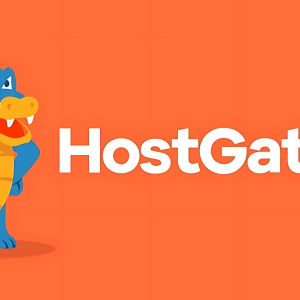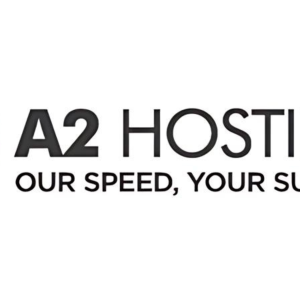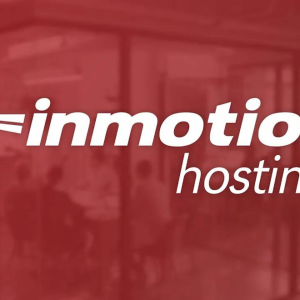
When it comes to shared hosting, speed is a key factor that can influence your website’s performance. A slow website can drive visitors away, so finding a reliable and fast shared hosting service is essential. In this guide, we’ll discuss the fastest shared hosting services available, their features, pricing, where to buy, and maintenance tips to ensure optimal performance.
1. Bluehost – A Reliable Option for Speed
Bluehost is one of the most popular shared hosting services, and it’s also known for its excellent speed. They offer shared hosting plans that are optimized for fast loading times, which is great for websites that need to perform well under high traffic conditions.
- Pricing: Starts at $2.95/month for shared hosting plans.
- Where to Buy: Purchase directly from their official site at bluehost.com.
- Maintenance Tips: Bluehost provides automatic updates, but it’s essential to optimize images and use caching plugins to ensure your website remains fast.
- Leading web hosting provider since 2003
- 99.99% uptime guarantee and high performance
- Easy-to-use dashboard and one-click WordPress installation
- 24/7 customer support via phone, chat, and email
- Free SSL certificates and advanced security features
- Affordable plans for every budget
- Trusted by over 2 million websites worldwide
- Real customer testimonials praising reliability and support
2. HostGator – Speed Meets Affordability
HostGator is another affordable and fast shared hosting option. It’s especially beneficial for users who want high uptime, fast loading speeds, and good customer support without breaking the bank.
- Pricing: Starts at $2.75/month for shared hosting plans.
- Where to Buy: Visit hostgator.com to purchase a plan.
- Maintenance Tips: Regularly check the site’s performance with Google PageSpeed Insights and keep the website optimized for speed with content delivery networks (CDNs).
- Leading web hosting provider since 2002
- 99.9% uptime guarantee for reliability
- Competitive pricing and 45-day money-back guarantee
- 24/7/365 customer support
- User-friendly cPanel for easy management
- Scalable plans for all business needs
- Real customer testimonials
- Hosting plans: Shared, VPS, Dedicated, and WordPress
- Additional services: Website Builder, Domain Registration, SSL Certificates, Email Hosting
3. A2 Hosting – Turbo Speed for Shared Hosting
A2 Hosting is well-known for its blazing-fast speeds, even with shared hosting plans. They provide Turbo Servers that are designed to load your website faster than traditional shared hosting.
- Pricing: Starts at $2.99/month for regular shared hosting and $5.99/month for Turbo Servers.
- Where to Buy: Go to a2hosting.com to make a purchase.
- Maintenance Tips: Use Turbo Servers for the best speed performance, and regularly optimize your website’s images and databases for even faster results.
- Lightning-Fast Speed: 20x faster Turbo Servers for optimal performance.
- Reliable Uptime: 99.9% uptime guarantee ensures your site is always online.
- 24/7/365 Support: Guru Crew support available anytime you need assistance.
- Eco-Friendly: Committed to green hosting with carbon offsets.
- Versatile Plans: Offers shared, VPS, and dedicated hosting plans.
- Secure Hosting: Free SSL certificates and robust security features.
- Developer-Friendly: Supports multiple programming languages and free site migrations.
4. Hostinger – Great Speed and Security
Hostinger is known for its lightning-fast shared hosting services, making it an excellent choice for users who prioritize speed without compromising on reliability. With its optimized servers and advanced caching technologies, Hostinger ensures quick load times, making it ideal for websites with high traffic demands.
- Pricing: Starts at $1.99/month for shared hosting plans.
- Where to Buy: Visit hostinger.com to purchase a plan.
- Maintenance Tips: Hostinger offers excellent performance out of the box, but integrating a CDN and regularly updating content can help maintain top speeds and enhance user experience.
- Affordable Plans: Starting at just $2.99/month.
- Fast Performance: Average response time of 143 ms.
- Comprehensive Support: 24/7 live chat assistance.
- Advanced Security: Unlimited free SSL certificates and DDoS protection.
- Versatile Hosting Options: Shared, cloud, VPS, and Minecraft server hosting.
- User-Friendly Website Builder: Drag-and-drop functionality with eCommerce features.
- Global Reach: Over 29 million users in 178 countries.
- 30-Day Money-Back Guarantee: Risk-free trial to experience Hostinger’s services.
5. InMotion Hosting – Speedy and Reliable
InMotion Hosting offers fast shared hosting options that are ideal for users who want to make sure their site remains quick and responsive. They also provide solid customer support and excellent uptime.
- Pricing: Starts at $2.29/month for shared hosting.
- Where to Buy: Purchase from inmotionhosting.com.
- Maintenance Tips: InMotion provides great performance right out of the box, but it’s important to monitor site speed regularly and keep your site optimized.
- Experience top-tier web hosting with InMotion Hosting
- Lightning-fast speeds and superior performance
- Robust security features to protect your website
- Award-winning 24/7 customer support
- Trusted by over 300,000 domains worldwide
- Choose from a range of hosting plans to suit your needs
- Eco-friendly initiatives and green data centers
- Join thousands of satisfied customers and unlock your online potential
Conclusion
If speed is a top priority for your shared hosting needs, services like Bluehost, HostGator, A2 Hosting, Hostinger, and InMotion Hosting provide fast and reliable options. By optimizing your site and regularly performing maintenance, you can ensure that your website remains fast and provides a great user experience.
FAQs: Speed and Performance in Shared Hosting
1. Why is speed important in shared hosting?
Speed is crucial in shared hosting because it directly impacts the user experience and the overall success of a website. A slow-loading website can frustrate visitors, leading to higher bounce rates and lower engagement. In today’s competitive online space, speed also affects your website’s search engine ranking. Websites that load quickly are favored by search engines like Google, which improves visibility and traffic. Additionally, slow loading times can harm conversions, especially for e-commerce websites where every second counts.
2. How does shared hosting differ from other types of hosting in terms of speed?
Shared hosting means that multiple websites are hosted on the same server, sharing the same resources such as CPU, memory, and bandwidth. This setup can affect website speed, as the performance of your website can be influenced by the activity of other websites on the same server. In comparison, VPS (Virtual Private Server) and dedicated hosting provide more resources allocated to a single website, offering faster speeds and better performance. However, shared hosting is still a cost-effective option for websites that do not require extensive resources, especially when optimized for speed through features like caching and CDN.
3. What factors influence the speed of a shared hosting service?
Several factors affect the speed of shared hosting, including:
- Server Quality and Hardware: The performance of the server hardware on which your site is hosted plays a significant role. Quality servers with better processors and more RAM can handle more data and requests quickly.
- Website Optimization: Optimizing your website’s code, compressing images, and using caching plugins can significantly enhance loading speeds.
- Content Delivery Network (CDN): Using a CDN helps deliver content faster by caching static content and distributing it across multiple servers globally, reducing latency.
- Traffic and Resource Sharing: In shared hosting, the resources are shared with other websites. If other sites consume excessive resources, it can slow down your site. It’s essential to monitor the server’s resource usage.
- Web Hosting Features: Some hosting providers offer advanced technologies like SSD storage, Turbo servers, or optimized server configurations that can improve speed.
4. Can shared hosting still provide fast speeds for high-traffic websites?
Yes, shared hosting can be fast enough for high-traffic websites, but this depends on the quality of the shared hosting service and how well the website is optimized. Services like A2 Hosting with Turbo Servers or Bluehost with optimized hosting plans are excellent choices for high-traffic websites. Additionally, utilizing caching, optimizing images, using a CDN, and limiting the use of heavy plugins can help maintain speed even during traffic spikes.
5. What are Turbo Servers, and how do they affect website speed?
Turbo Servers are a feature offered by A2 Hosting that significantly enhances the speed of websites. They use specialized technologies, including faster server hardware, optimized software, and fewer customers on each server, to boost loading times. Turbo Servers can improve page loading speeds by up to 20x compared to standard shared hosting, making them an excellent choice for websites that need high performance, such as e-commerce sites or blogs with lots of media content.
6. How can I ensure that my shared hosting plan remains fast over time?
To maintain fast speeds over time, consider the following maintenance tips:
- Regularly Update Your Website: Keeping your website’s software, themes, and plugins up-to-date ensures security and performance improvements.
- Optimize Your Database: Clean up your database by removing unnecessary data and reducing its size. Regular database optimization helps maintain fast load times.
- Use a Content Delivery Network (CDN): A CDN stores copies of your website’s static content across multiple servers, which reduces latency and speeds up loading for global visitors.
- Compress Images: Large images can significantly slow down your website. Use tools to compress images before uploading them to your site.
- Limit the Use of Heavy Plugins: Some plugins can slow down your website. Regularly audit your plugins and remove any that are unnecessary or outdated.
- Leverage Caching: Implement caching mechanisms, such as browser caching and server-side caching, to reduce load times by storing static content locally.
7. What is the role of a Content Delivery Network (CDN) in improving website speed?
A CDN improves website speed by distributing your website’s content across multiple servers around the world. This allows users to access your content from the server closest to their location, reducing latency and improving load times. CDNs are particularly useful for websites with global traffic, as they reduce the load on your origin server, prevent server overload, and offer a more reliable performance even during traffic spikes. Popular CDN services include Cloudflare, MaxCDN, and StackPath.
8. How does website optimization impact shared hosting speed?
Website optimization directly impacts shared hosting speed. Even on the fastest servers, a poorly optimized website can load slowly. Key optimization steps include:
- Image Optimization: Images should be resized and compressed without losing quality to reduce file sizes.
- Minifying Code: Minify CSS, JavaScript, and HTML files to reduce their size, which helps speed up loading times.
- Caching: Caching stores static files (such as images and scripts) in the user’s browser or server, which prevents unnecessary reloading of content.
- Reducing HTTP Requests: Every element on a webpage (images, CSS, JavaScript) requires a separate HTTP request. Reducing the number of elements on a page can decrease load times.
- Lazy Loading: Implement lazy loading to ensure that images or videos load only when they enter the viewport, which can save bandwidth and speed up the initial page load.
9. Are there any specific hosting features I should look for to improve speed?
When looking for shared hosting plans optimized for speed, consider the following features:
- SSD Storage: SSDs (Solid State Drives) are much faster than traditional HDDs (Hard Disk Drives) and can improve site loading times significantly.
- Caching Features: Hosting plans with built-in caching (such as Varnish or LiteSpeed) can drastically improve speed.
- Free CDN Integration: Some hosting providers offer integrated CDNs that can boost performance without needing a third-party service.
- HTTP/2 Support: HTTP/2 is a newer version of the HTTP protocol that can speed up websites by handling multiple requests in parallel and reducing latency.
- PHP 7+ Support: Using a newer version of PHP can result in faster server processing, improving overall site performance.
10. How do I choose the best shared hosting plan for speed?
To choose the best shared hosting plan for speed, focus on the following criteria:
- Server Infrastructure: Choose a provider with high-quality servers (preferably with SSD storage) and technologies designed for performance.
- Optimization Features: Look for built-in features such as caching, a CDN, and optimized server configurations.
- Reputation and Performance: Research reviews and performance tests to find a hosting provider known for excellent uptime and speed.
- Scalability: Ensure the hosting provider allows you to upgrade to more powerful plans (like VPS or dedicated hosting) if your site outgrows shared hosting in the future.
- Customer Support: A fast and responsive customer support team can help you troubleshoot speed issues quickly, keeping your website performance intact.
By following these guidelines and tips, you can ensure that your shared hosting plan delivers excellent speed and performance, helping your website thrive and perform well even under heavy traffic.











